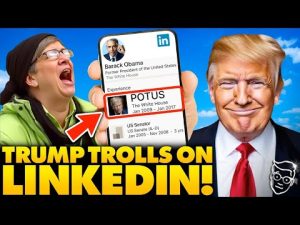In a significant ruling that has tech enthusiasts buzzing, a federal judge decided on Tuesday that Google will keep its popular Chrome browser—much to the relief of its fans. The decision comes after Judge Amit Meta declared that Google had established itself as a monopolist in the search market, a conclusion that raised eyebrows and sparked discussions across the tech world. But while the judge stopped short of forcing Google to sell off Chrome, he did lay down some legal smackdowns that will require the tech giant to share certain data with its competitors.
This isn’t Google’s first encounter with controversy. Just last year, the tech behemoth paid a hefty $700 million to settle an antitrust lawsuit related to its app store practices. More recently, Judge Meta’s ruling highlighted Google’s use of exclusive distribution agreements and its pricing strategies for search text ads, which he deemed to be anti-competitive. It seems that Big Tech is continuously under the microscope, and Google’s practices have certainly attracted the attention of regulators.
The U.S. Justice Department had high hopes of compelling Google to divest itself of Chrome, fearing that the company’s dominant position could stifle competition and innovation. In an intriguing twist, an artificial intelligence company named Perplexity even made a whopping $34.5 billion offer to acquire the browser, arguing that this move could remedy the competition issue. Although this sounded like a heroic rescue mission for the browser, Judge Meta took a different path. He maintained that selling Chrome would not only hurt the browser but also its millions of users.
Instead of a drastic breakup, Judge Meta imposed a series of watchful regulations on Google. He mandated that the company share search and user interaction data with “qualified competitors.” This is a fancy way of saying that Google can’t keep its insights to itself; other companies will now get a peek under the hood. Furthermore, Google will have to offer its search and search text ads syndication services to competitors. This ruling is a significant step toward leveling the playing field in the online market.
In a cherry on top for Google, Judge Meta’s decision caused a surge in shares of its parent company, Alphabet. Hours after the ruling, stock prices climbed nearly 8% following a slight decline earlier in the day. It was a classic case of “bad news is good news” for the stockholders. With Chrome holding a whopping 63.7% share of the web browser market, as reported by SimilarWeb, Google still stands tall in the digital landscape—even if it’s now required to play nice with the other kids in the tech sandbox.
In the ever-evolving world of technology, this ruling demonstrates that regulators are keeping a sharp eye on monopolistic behaviors, while Google continues to assert itself as a dominant force. As the dust settles, it remains to be seen how these changes will affect the competition landscape and what innovations might emerge from this newfound scrutiny. It’ll be fascinating to watch how Google navigates this new terrain, armed with the knowledge that it must now share some toys in the tech playground.







